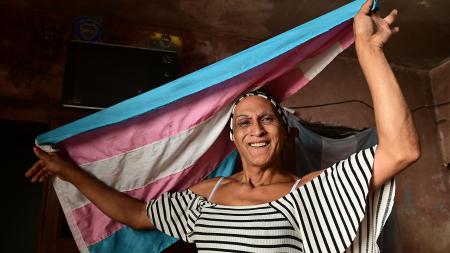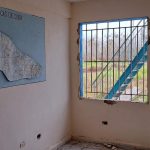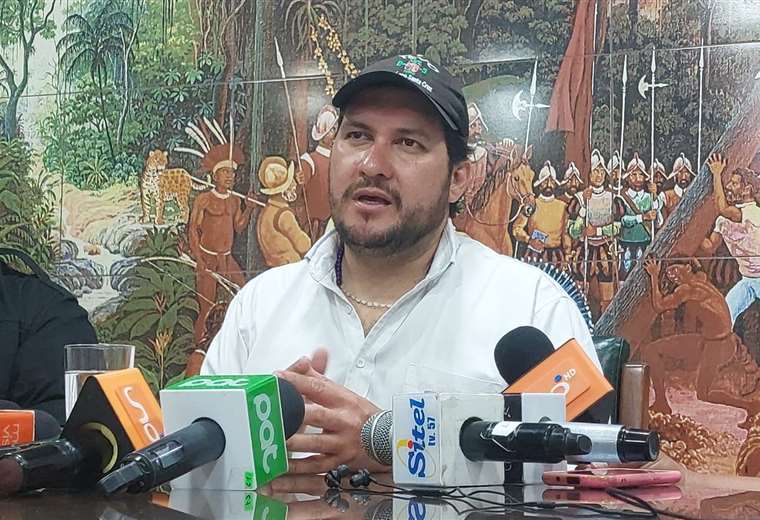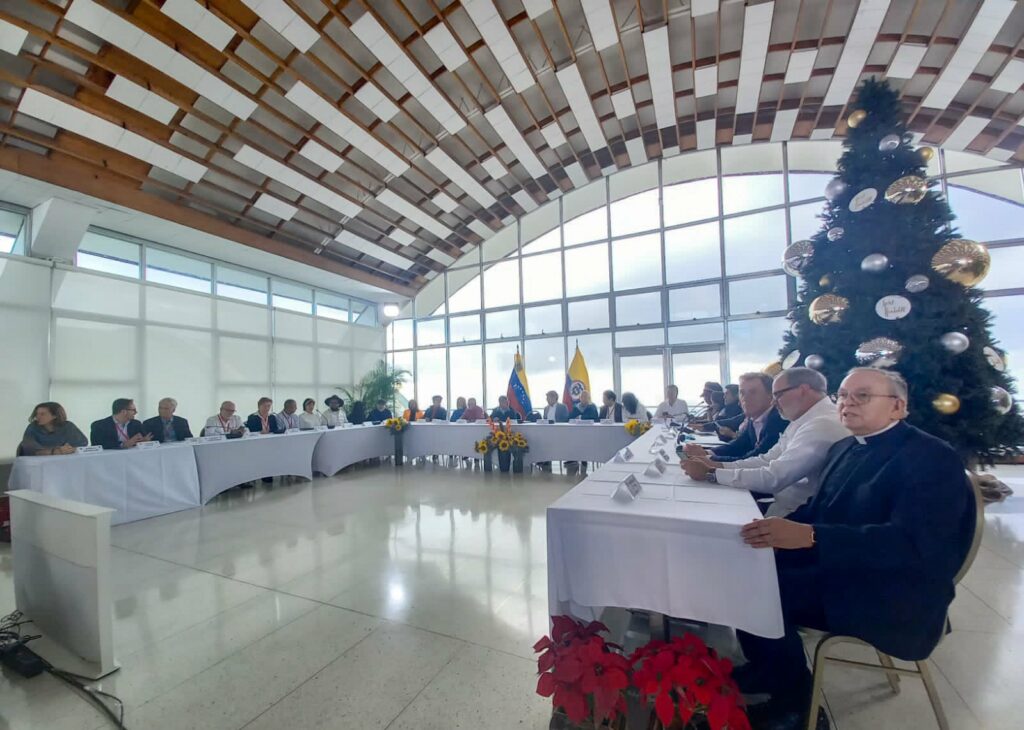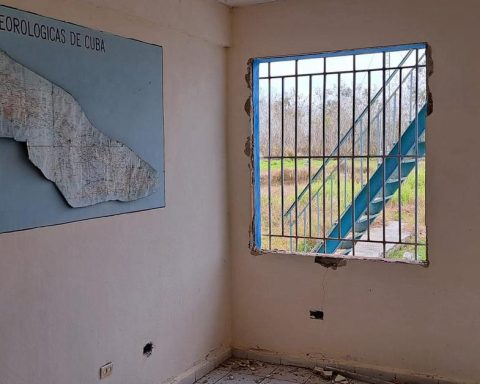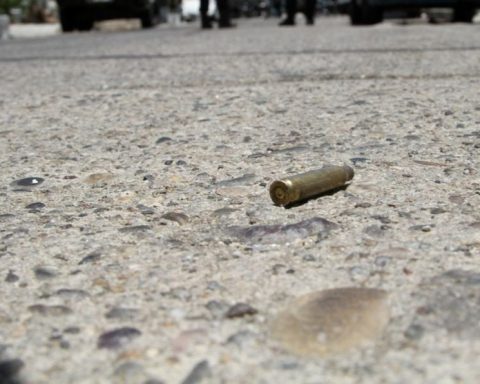Trans survivors of systematic persecution during the last military dictatorship highlighted the “social and symbolic” importance of the State recognizing and repairing the “lives of exclusion and vulnerability” suffered by the group during this period and demanded recognition of the police violence that “increased” during the first years of democracy, on the occasion of the International Day of Trans Memory, which is commemorated every November 20.
Very few are alive today to narrate what they had to go through during the dictatorship. Fabiana “La Cañito” Gutiérrez, Marzia Echenique, Carolina Boetti, Mariana “La Choco” Fernández and Karina Pintarelli are some of them, who between 2018 and 2022 they were historically repaired by the states of the provinces of Buenos Aires and Santa Fe and the nationalrespectively.
The memories of Fabiana “La Cañito”
“I was still a child but all I wanted was to be a woman. One day, in the grocery store with my mother, I saw a trans woman go by: it was transcendental for me because I understood that I was not alone. That’s when I began to be who I am,” she said. Telam Fabiana “La Cañito” (60).
From the age of 14 he began with his “night getaways” to the squares of La Tablada, in the Buenos Aires suburbs, and next to the exits the police persecution began, which did not stop until he went into exile in Italy, where he has lived since 1985.
“I got to know the dungeons and the evil of the people when I was very young, when they began to beat me, make me sleep on the cement (of the police stations) or deny me food”he remembered.
That of the military dictatorship was a very “hard and dark” time for the trans collective in Argentina. “They sucked you off the street and you didn’t know where you were going, that’s where they sent you to Campo de Mayo, to the Banfield Well or wherever,” La Cañito said.
And with a voice full of impotence, she pointed out: “They did what they wanted with us, they sexually abused us, they psychologically bagged us.”
They ask for reparation for transvestite trans people, victims of police violence
Various national and provincial bills seek to guarantee economic compensation for trans and transvestite people who were victims of institutional violence, both during the dictatorship and in democracy.
Marcela Tobaldi, a reference for the La Rosa Naranja civil association and the Pride and Struggle front and a member of the Ministry of Women, Gender and Diversity, told Télam that “when there is no inclusion -social, economic, educational- of certain groups, the State It must repair that population.”
“In Argentina it is not known exactly but according to the National Registry of People (Renaper) the trans population is 11 thousand people, although without counting the people who did not agree to the gender change”he detailed.
Within this framework, he considered the historical economic reparations granted since 2018 to less than twenty trans women in Santa Fe, two in the province of Buenos Aires and one nationwide “really insufficient”, and highlighted the need to “advance in a reparation law “for all”.
In the Buenos Aires province on the initiative of Women’s Ministrya bill was sent to the legislature to recognize and financially compensate transvestites and trans victims of institutional violence, which has already been approved for their treatment.
“It is the project that seems to us to be the best of all, because it speaks of an important amount of money so that the colleagues in the future are comfortable every month. It really is superior in terms of human rights”considered Tobaldi.
In Santa Fe A bill was presented in April of this year that has the objective of economic reparation for the transvestite and trans population that was persecuted by the State in a democracy, specifically.
In that province, a norm was approved in October based on which transvestite and trans people over 35 years of age -average life age of the group- will be able to access non-contributory pensions.
At the national level, the deputy for the Frente de Todos Mara Brawer brought to Congress a project that “addresses the problem but proposes the same amount that pensions and retirements receive that any retiree receives.” “That is, it recognizes, but does not repair,” Tobaldi said.
In the same sense, the Argentine LGBT+ Federation promotes the Comprehensive Trans Law project, which in its article 9 provides for “a monthly subsidy for trans people over 40 years of age” equivalent to “a minimum retirement”.
“Although the persecution was more with those who were militants, they persecuted us to discipline us for our identity. We were a plague that they had to exterminate,” she recalled.
Starting in 1977, La Cañito went to work on the Pan-American highway, at a time marked by a lethal police persecution, protected by the police edicts that governed the City of Buenos Aires, repealed in 1998, and the Contraventional Codes in the Province of Buenos Aires, eliminated a decade later.
“They shot us, there was a large number of girls who died from crossing the Pan-American Highway to try to get out of being inside for 30, 90 or even 120 days. We did not know freedom,” he said.
In August, Fabiana was recognized by the Buenos Aires government as a victim of gender identity violence during the last civil-military dictatorship within the framework of Provincial Law 14,042.
“When I started this process I thought I was never going to get out. It was a victory in my life,” he said from his exile in Italy.
The story of Mariana “La Chocolate”
In telephone communication with this agency, the sweet voice of Mariana “La Chocolate” (61) revived that same feeling and assured: “For me the repair was a salvation.”
La Choco was born in Corrientes but shortly after she moved to Rosario with her family led by her police father, who “never accepted her.”

Throughout her life, they tried to wrest her identity from her in every possible way, inside her home, beatings, punishments and even, for a time, submitting to the Evangelical church and to healers because -they said- she “had the demon”.
“I was sick and they had to cure me, they thought so,” she recalled with a small voice.
The rest of his life was the very history of this group. What saved her, she said, was “humor and her 5 children” that she had with her “great partner” Marcela, whom she married “forced to cover up my homosexuality.”
In 2019, along with almost twenty colleagues, she received historical reparation from the Santa Fe government within the framework of Provincial Law 13,298, which establishes a monthly pension for those who have been “deprived of their liberty for political, trade union or students” during the dictatorship.
“It was worth enduring the suffering, the exclusion, not learning to write because they cut me off at school, not having a birthday or Christmas because we had to hide,” said La Choco and assured: “At least I will have an old age calm, without having to stand in the corner to eat”.
Archive of the Transvestite Memory of Santa Fe
To record this collective history, the Rosarinas Carolina Boetti (58) and Marzia Echenique (59) created the Santa Fe Trans Travesti Memory Archive in 2015, a “fundamental tool for the defense of human rights and for reparation.”

They obtained it in 2018 and 2019 respectively, due to the persecution they suffered since they were teenagers.
“Today we do not have acquired rights, but recovered rights, which are the ones that were denied to us and that are neither more nor less than those that any other person has,” they said.
Marzia highlighted the “symbolic and social” value of “acknowledging a debt that the State owes to a sector of the population that it encouraged to live in hiding” and considered that it is an opportunity to “accentuate democracy.”
“When I was young we were a group of 40 trans women. When I returned from exile in Italy we were 12”Carolina added, stressing the importance of “repairing those who remain.”
Karina Pintarelli’s repair
Karina Pintarelli (64) was inspired by their cases to start her process for historical reparation. “I read about them and made it a point to be able to do something with my story,” she said.
“My mother told me that she was expecting a baby, but I was born a baby. She was a very beautiful and delicate creature,” Karina recited with her poetry book in hand, in the patio of “Casa Leonor”where she lives with three other colleagues who make up the organization Not so Distintes, which works with women and LGBTIQ+ in street situations.

That inalienable desire “to be Karina” subjected her to three decades of record in the Federal Police: constant persecutions, arrests and torture from the late 1960s to 1996.
Last July, Karina became the first trans survivor of the dictatorship to receive reparation from the National State and her inclusion in the reparation regime provided for in Law 24,043.

“It is a recognition for those of us who live it but also a message for the younger ones. Now there is more acceptance, we do not live that”he concluded.
Repairing what happened in democracy, they all agreed, is still an outstanding debt to all trans women “systematically persecuted in the post-dictatorship period, which was even worse.”
